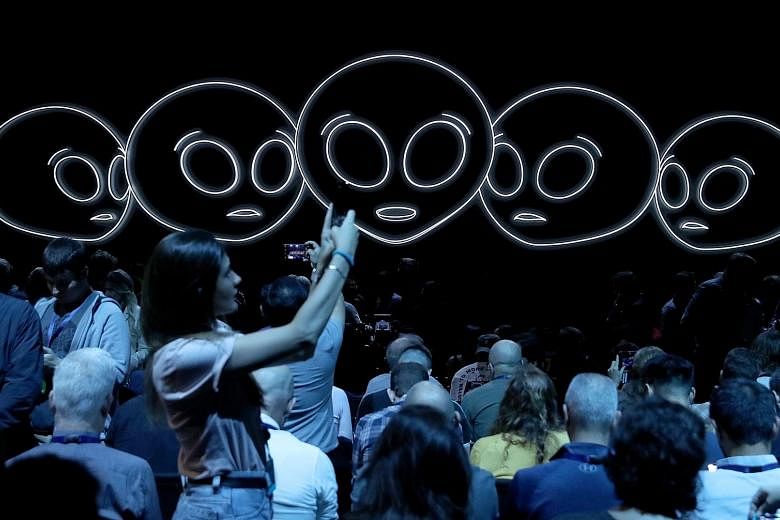iTunes, the application that revolutionised the way people buy music when it was launched 18 years ago, is no more - itself overtaken by changes in the music industry.
At its annual Worldwide Developers Conference on Monday, Apple said it will be discontinuing iTunes.
Its functions will be broken up into three separate apps - Apple Music, Apple TV and Apple Podcasts - when the new operating system for Mac computers, dubbed macOS 10.15 Catalina, becomes available in September.
Apple's software chief Craig Federighi announced the demise of iTunes with a joke, first suggesting that Apple would be adding features to an app already derided for being bloated, before saying: "The future of Apple Music iTunes is not one app but three."
New features for Apple's operating systems for iPhones, iPads and Macs were also announced at the conference.
iTunes, launched in 2001, ushered in a new era of paid music downloads by offerings songs for a dollar each at a time when illegal music downloads were rampant. However, times have changed, with consumers preferring to stream music onto their devices these days.
Mr Bryan Ma, vice-president of client devices research at market research firm IDC, pointed out the advantage of streaming, which is the ability to access a vast catalogue of music without having to make individual purchases.
"Users also don't have to physically move the music from one device to the next," he said.
"With more network coverage and more bandwidth available to users today, streaming has been made much more dependable and affordable."
The writing has been on the wall for some time.
According to the Recording Industry Association of America's 2018 report, streaming represented 75 per cent of the US music industry's revenue last year. By comparison, digital downloads of music contributed 11 per cent.
Mr Loo Wee Teck, head of consumer electronics at market research firm Euromonitor, said iTunes was "a necessary evil" when it was introduced. It was designed for the iPod but "continued its unwelcome stay on Apple devices and computers for 18 years".
The new Apple Music app will keep some of iTunes' key features, such as music purchases and syncing of iOS devices.
The Straits Times understands that users will be able to keep their content libraries in the respective apps - Apple Music, Apple TV and Apple Podcasts - following the discontinuation of iTunes.
Marketing executive X.Y. Chow, 26, said she does not use iTunes except to back up her phone. But now she wonders if she would need to turn to other options with the discontinuation of iTunes.
"I just hope that data syncing would not be an additional hassle," she said, adding that she has resisted backing up on the cloud to avoid incurring the ongoing costs of cloud-based storage.
•Additional reporting by Yip Wai Yee

